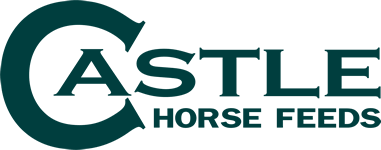A fully balanced diet is essential for all horses but how you provide this will depend on their type, work and condition. Good doers who do well on just forage alone will benefit from a balancer, which is designed to be fed in small amounts to supply all their essential vitamins, minerals and amino acids (micronutrients) without excess calories. Horses in more work and needing more condition will require extra calories alongside essential micronutrients and all this can be provided with a good compound feed.
A Balancer is a nutrient dense feed designed to be fed in small amounts which provides all the essential vitamins, minerals and quality protein for a fully balanced diet. Balancers add great flexibility to the diet and mean that you can add extra nutrients or not depending on the individual requirements of your horse. Balancers also often contain other beneficial ingredients such as yeast based prebiotics which have been shown to support beneficial hindgut microbes, improving fibre fermentation and nutrient digestibility so the horse gets maximum benefit from his diet.
Unfortunately, energy and calories are essentially the same! This means you cannot add energy to the diet without adding calories and increasing the potential for weight gain. If the horse is lacking energy but in good condition it is unlikely this would be due to a lack of energy in the diet. The most effective way to increase energy levels, is to make sure your horse is at a healthy weight and fit enough for the work they are doing simply because the amount of energy generated from feed increases with fitness.
Horses need to eat 2-2.5% of their bodyweight (BW) per day in forage dry matter (DM), which is 10-12kg per day for a 500kg horse. The dry matter (DM) is key because forages can differ in their DM content. Haylage for example, normally has a lower dry matter content than hay, so you would need to feed 1.2 to 1.5 times more than hay depending on the DM content of the haylage, to ensure the horse receives adequate DM. This would mean that a 500kg horse fed haylage alone at 2% of BW would need to be having 12 to 15 kilos per day. This can also apply to hay, for example, if the hay had a DM content of 90% and the horse received 10kg per day it would only be getting 9kg dry matter. Therefore, you would need to feed 11kg of that hay to ensure the 10kg DM per day that is needed to meet requirements.
Forage itself should always make up the majority of the diet to ensure normal, healthy gut function, and if even if forage needs to be substituted with higher en
